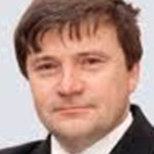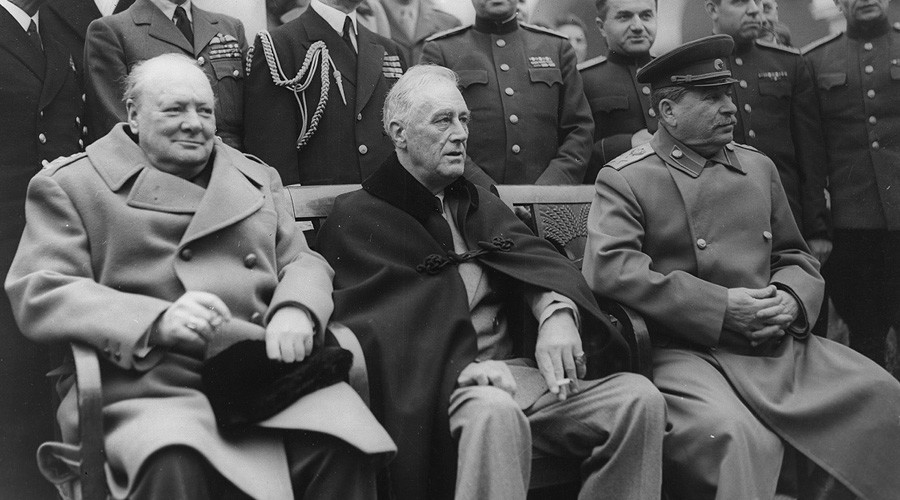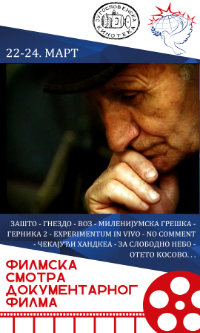Rede von Zivadin Jovanovic auf Tagung des Belgrad-Forums
Am 24. und 25. November fand in der Hauptstadt Serbiens eine Tagung des »Belgrad-Forums« unter dem Titel »Jalta, Potsdam, Helsinki, Belgrad: Auf der Suche nach einer Sicherheitsordnung« statt. Der Präsident des Forums, Zivadin Jovanovic, hielt eine Rede zum Thema »Instabilität und Konflikte – das Resultat der Strategie des Westens«, die jetzt auf deutsch vorliegt. Ein Auszug: Siebzig Jahre nach den Konferenzen der Alliierten in Jalta und Potsdam, und 40 Jahre nachdem die Schlussakte von Helsinki angenommen wurde, sind die internationalen Beziehungen in eine Periode tiefgreifender Veränderungen eingetreten. Die Zeitalter bipolarer und unipolarer Weltordnung sind vorüber. Eine Wiederherstellung der alten Methoden und Konzepte ist nicht mehr möglich. Die Weltordnung entwickelt sich unwiderruflich zu einer multipolaren hin. (…) Der Prozess der Multipolarisierung verläuft nicht glatt. Besonders beunruhigend sind Tendenzen, die darauf abzielen, Vorherrschaft und Privilegien gewisser Länder zu erhalten, die das von ihnen beanspruchte Recht auf eine Ausnahmestellung, auf globalen Interventionismus und militärische Expansion Richtung Osten mit allen Mitteln, auch mit militärischer Gewalt, legitimieren wollen. Das Ergebnis einer solchen Politik der Gewalt, wie sie der von den USA beherrschte Westen anwendet, wenn es darum geht, diese Privilegien beizubehalten und den Reichtum unseres Planeten zu kontrollieren, bedeuten Destabilisierung, Konflikte, und die Verwüstung vieler Staaten und Gesellschaften. Die Verfechter einer solchen totalitären Politik tragen die Verantwortung für die Destabilisierung und die dramatische Eskalation, durch die der Menschheit eine Katastrophe droht. Erste Opfer dieser Politik waren in jüngster Zeit die zwei Jugoslawien – einmal, als das Land Anfang der 1990er Jahre durch aufgezwungene Bürgerkriege zerrissen wurde, und zum zweiten, als es durch die illegale Aggression der NATO im Jahre 1999 verwüstet wurde. Damit wurde der Balkan zu einer Zone anhaltender Instabilität. Der vom Westen geförderte Prozess eines Umschreibens der Geschichte »in vivo« (»im lebenden Organismus«, jW) brachte mehrere Kleinstaaten hervor, die kaum eine Chance auf autonome Entwicklung und Unabhängigkeit haben. Und es hat den Anschein, als ob die gewaltsame Festlegung neuer Grenzen unter Verletzung der Grundprinzipien des Helsinki-Dokuments noch nicht zu Ende ist. (…) Die wirtschaftlichen und sozialen Probleme nehmen rasch zu, die Arbeitslosigkeit bei Jugendlichen erreicht dramatische Größenordnungen. Diese Einschätzung wird gestützt durch das Zerschlagen einer Reihe anderer souveräner Staaten und Nationen in der ganzen Welt auf ähnliche Weise. Offensichtlich verzichten die westlichen Machtzentren nicht auf ihre Strategie einer »territorialen Neuordnung« souveräner Staaten durch bewaffnete Überfälle, »Farb-Revolutionen« und andere unerlaubte Methoden, wie sie in Südamerika, Afrika und Asien angewandt werden. Das liberale Kapitalismussystem produziert Finanz- und Wirtschaftskrisen, Armut, Elend. Das hat zu einer Wirtschaftsmigration noch nie dagewesenen Ausmaßes geführt. Gleichzeitig treiben Aggressionen und bewaffnete Konflikte Millionen aus ihrer Heimat ins Exil. *** Propositions of the International Science and Public Conference Yalta – Potsdam – Helsinki – Belgrade: In Search for Secure World Order on the Issues of Security and Cooperation in Europe in the XXI century 24-25 November 2015, Belgrade, Serbia
The participants of the International Science and Public Conference Yalta – Potsdam – Helsinki – Belgrade: In Search for Secure World Order dedicated to the historic agreements and pressing issues of security and cooperation in Europe, which has brought together representatives of many states around Europe, Asia and America, following the results of a widespread public dialog and opinion interchange that took place during the year of the 70th anniversary of the Yalta and Potsdam Conferences and the 40th anniversary of the signing of the Final Act of the Conference on Security and Cooperation in Europe, consider it necessary to declare: The issues of security and cooperation in Europe and in the whole world have been a long established subject matter of interstate agreements and inter-country collaboration. At the same time, we believe that the current state of affairs makes a true progress and continuous headway movement impossible without the support of the public opinion and involvement of non-governmental initiatives in the development of the system of security and cooperation in Europe, based on mutual trust. This has become ever more evident after Turkish military air force shot down the Russian fighter jet conducting a flight as part of the anti-terrorist operation in Syria and Iraq, which may lead to tragic consequences for peace in the whole world. The Conference also underscores that without Russia’s participation it is impossible to resolve the Syrian crisis and counteract international terrorism deeply rooted in many regions around the globe. We are convinced that the terrorist attacks in Turkey, the explosion of the Russian jet over the Sinai peninsula and mass murders in Paris that claimed hundreds of lives have brutally challenged the global community and demonstrated the necessity of searching for the new approaches, reinforcing and joining the efforts for a coordinated fight against international terrorism and extremism as a global threat to humanity. In this respect we consider it necessary to urge the Organization for Security and Cooperation in Europe, other international organizations and the global community in general to consider specific proposals on optimization of activity in the sphere of security and cooperation, strengthening mutual understanding and the search of compromises on the pressing issues. We suppose that the International Science and Public Conference Yalta – Potsdam – Helsinki – Belgrade: In Search for Secure World Order, held in Serbia, a country with a non-aligned status and rich traditions of a European political center of the Nonaligned Movement, may start a meaningful international public dialog on the ways of creating an effective system of security and cooperation in Europe. Therefore we believe that the Final Document of the International Conference may be presented at the OSCE Ministerial Council that will take place on 3-4 December, 2015 in Belgrade. INSTABILITY AND CONFLICTS – OUTCOME OF THE STRATEGY OF THE WEST
Živadin Jovanović,
Seventy years on after the Allies’ Conferences in Yalta and in Potsdam, and 40 years following the adoption of the Helsinki Final Act, international relations have entered a period of profound changes. The eras of bipolar and unipolar world order are over. Restoring to the old ways and concepts is no longer possible. The world order is irreversibly evolving into a multi-polar one. The new development fundamentally changes the relations established after the fall of the Berlin Wall, opening possibilities for democratization of these relations, and for higher observance of the international law and the United Nations Charter that lies in its core. This also offers possibilities for a better protection of interests of small and medium countries, Serbia including.
The process of multi-polarization does not run smoothly. Particularly worrisome are tendencies aiming to preserve domination and privileges of certain countries,to legitimize their self-imposed right to exceptionality, global interventionism and military expansion to the East, by all means, including use of military force. The outcome of such policy of force applied by the US-led West in seeking to maintain the privileges and put under its control the planet’s wealth, are destabilization, conflicts, and devastation of numerous states and societies. Proponents of such totalitarian policy bear responsibility for the destabilization and dramatic escalation of global relations threatening to inflict disaster of humanity. The first casualties of this policy in recent times were two Yugoslavia(s) – the first one torn apart by imposed civil wars at the beginning of 1990s, and the second one, ravaged during the course of illegal NATO’s aggression in 1999. Thus, the Balkans was transformed into a zone of long-term instability. The West-sponsored «in vivo» rewriting of history created several statelets that hardly have a chance of an autonomous development and independence. It seems that the forcible drawing of new borders in violation of the basic principles of the Helsinki Document is not over yet. The proof is the stealing of the Province of Kosovo and Metohija away from Serbia, and the reviving of plans of creating the so-called Greater Albania. The hardest-hit victim of the US-led destructive strategy in the Balkans is the Serbian nation, now shattered, disempowered and put under the control of puppet regimes. Paradoxically, the West proclaims that parallel unfolding of fragmentation of the Serbian nation, on the one side, and (re)integration of other nations, on the other, amount to no less than contribution to the peace and stability, and to the observance of European and democratic standards! Serbian national issue is more than simply an open one; it is further exacerbated by means of disruption and disenfranchisement. This forced-upon situation is hardly in the interest of peace and stability. Of course, it has to do with geopolitical engineering, nurturing imperialistic interests and nothing else. Economic and social problems are rapidly growing, whereas the unemployment of the youth reaches dramatic magnitude. Yalta, Potsdam, Helsinki, Belgrade. How can we build a more secure world order?
Neil Clark
The ongoing war in Syria. The rise of Islamic State. Terror attacks in Sinai, Paris, Lebanon, Iraq and Tunisia. The shooting down of a Russian jet by NATO member Turkey. Speakers from over 20 countries - myself included- addressed the key question: how can we build a more secure world order, where countries - large and small- respect national sovereignty and international law and where dialogue and diplomacy replaces war and the threat of war? The International Public and Scientific Conference, held in the same Sava Centre building in Belgrade where the Non-Aligned movement was founded in 1961, commemorated three significant anniversaries. The 70th anniversaries of the Yalta and Potsdam conferences, (between the leaders of the USSR, US and Britain), and the 40th anniversary of the Helsinki Accords, which established the Organization for Security and Cooperation in Europe. The conference preceded the OSCE Ministerial Council meeting that will be held in Belgrade in December. |
| Overstatement from Davos 2017. |
Liberal corporative capitalism, for reasons of lowering traveling costs, proposed not to travel to history alone but packed togather with NATO, EU and unipollar World Order. Workers participation has good chances to step in provisionally, buying time for full scale workers selfmanagment. |






 Neil Clark is a journalist, writer, broadcaster and blogger. He has written for many newspapers and magazines in the UK and other countries including The Guardian, Morning Star, Daily and Sunday Express, Mail on Sunday, Daily Mail, Daily Telegraph, New Statesman, The Spectator, The Week, and The American Conservative. He is a regular pundit on RT and has also appeared on BBC TV and radio, Sky News, Press TV and the Voice of Russia. He is the co-founder of the Campaign For Public Ownership @PublicOwnership. His award winning blog can be found at www.neilclark66.blogspot.com. He tweets on politics and world affairs @NeilClark66
Neil Clark is a journalist, writer, broadcaster and blogger. He has written for many newspapers and magazines in the UK and other countries including The Guardian, Morning Star, Daily and Sunday Express, Mail on Sunday, Daily Mail, Daily Telegraph, New Statesman, The Spectator, The Week, and The American Conservative. He is a regular pundit on RT and has also appeared on BBC TV and radio, Sky News, Press TV and the Voice of Russia. He is the co-founder of the Campaign For Public Ownership @PublicOwnership. His award winning blog can be found at www.neilclark66.blogspot.com. He tweets on politics and world affairs @NeilClark66 Yalta Conference in February 1945 with (from left to right) Winston Churchill, Franklin D. Roosevelt and Joseph Stalin.
Yalta Conference in February 1945 with (from left to right) Winston Churchill, Franklin D. Roosevelt and Joseph Stalin.







